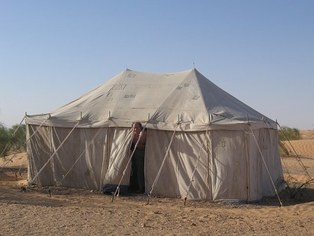
While a shortstop in baseball is a great position to be in, a short stop in spiritual matters can lead to many disadvantages. Just ask Jacob. He experienced a touch of God. He had spiritual encounters. He even made attempts to head the right direction in his life, but he stopped short—and that left him with heartache, trouble, and pain.
God had spoken to Jacob in Bethel when Jacob was fleeing Esau and heading to Padanaram. “I am with thee, and will keep thee in all places whither thou goest, and will bring thee again into this land; for I will not leave thee, until I have done that which I have spoken to thee of.” The promise was for a full return. To THIS land. WHERE HE WAS.
Then, when the time came for Jacob to leave Laban’s God said, “Return unto the land of thy fathers, and to thy kindred; and I will be with thee.” LAND OF THY FATHERS. In a dream, God confirmed, “I am the God of Bethel, where thou anointedst the pillar, and where thou vowedst a vow unto me: now arise, get thee out from this land, and return unto the land of thy kindred.” Note: God was associating Himself with Bethel, where the first promise for return was given. And again, God emphasizes RETURN to the LAND OF THY KINDRED.
Now, Abraham and Isaac had sojourned in Hebron, and in all likelihood, that’s where Jacob was heading, but he stopped elsewhere: “…Jacob journeyed to Succoth, and built him an house, and made booths for his cattle: therefore the name of the place is called Succoth. And Jacob came to Shalem, a city of Shechem, which is in the land of Canaan, when he came from Padanaram; and pitched his tent before the city. And he bought a parcel of a field, where he had spread his tent...”
While a nice, leisurely pause to make the long journey less taxing was certainly in order, it seems that Jacob set up housekeeping too soon. And by not pushing to reach Bethel, where there was a God-connection, or Hebron, where there his father and grandfather had staked their faith claims, he set himself up for a series of painful events. In Shechem, his daughter was sexually violated, and two of his sons murdered an entire city of men. Though this put Jacob into motion, heartache hounded him for the rest of his journey. His wife died in childbirth and his eldest son defiled his concubine. But the trouble didn’t stop there. The plot of land he purchased in Shechem, that place where he’d stopped short of the goal, was where Joseph went in search of his brothers. He would follow them to Dothan and subsequently be sold into slavery.
If I speculate, I can imagine circumstances being much more favorable for Jacob and his family if he had made getting to Bethel and to the land of his fathers a priority. His camping out would have required less tarrying, less building friendships with those who didn’t value his God and who would influence his family unfavorably.
God was still God, and He fulfilled every promise even though Jacob hung out in Shechem overlong. But God doesn’t usually give us direction for HIS benefit; it is for OUR GOOD.
Like Jacob, we are short-stoppers. We compromise. We keep a little bit of control. We rely on our reasoning. We look out for self and forego a sell-out mentality. We attempt to live for God our way, with added comfort for our flesh. We fail to truly press for the spiritual, to strive for the promises of God. And we are only hurting ourselves.
If we rely on our thinking, we will always fall short. It’s our human nature. “For all have sinned, and come short of the glory of God;” There’s only one way to experience the fullness that God offers, and that’s to do things God’s way. When we fully surrender to His plan, we set a positive course for our posterity, and we catch every blessing God sends our way.
Tip/Tidbit: Are there areas of your life that you prefer temporary comfort over pressing forward for more of God? In what ways could you pick up your tent stakes, get rid of your idols, and make spiritual progress?
 RSS Feed
RSS Feed
